Perhaps the most surprising thing about Theresa May’s arrival at No. 10 is that it has given us back a prime minister who has owned a racehorse. Well, part of one anyway. Theresa the Merciless was once in a syndicate at William Muir’s friendly Lambourn yard which owned a grey called Dome Patrol, the winner of a couple of races back in the 1990s. At least it did better than Brexit, a two-year-old filly that finished sixth at Newbury on referendum day after being fifth the time before. Not exactly going in the right direction…
Pressed back into commenting for CNN on the resulting festival of conspiracies, cock-ups and character assassinations completed by a coronation, I fell to musing in the intervals between live broadcasts from Downing Street on how some of Mrs May’s rivals might have named their nags had they too ventured into ownership. Michael Gove would surely have chosen So Sorry Boris. Racecourse commentators would have known where to put the emphasis. Andrea Leadsom would probably have followed the fashion for compendium names with Ireallydidntmeanit, no doubt sired by Mummy’s Pet. Liam Fox, having once had to resign as defence minister after admitting his uncleared adviser into briefings, might have gone for Code Breaker, while David Davis, the cheerful bruiser who is now Secretary of State for EU Extrication, could appropriately have owned Whistling Down The Wind for his expressed hope that the other 27 will somehow allow Britain free trade access to their markets while refusing the free movement of people they all have to put up with.
But what will Brexit mean for racing? For a start, the 15 per cent drop in the value of the pound is going to make it more expensive to buy foreign bloodstock, although it has to be said that the first sales since the referendum result in France and Ireland have not shown any fall-off in buyers’ enthusiasm. Many of the big owners, I guess, have pockets deep enough not to notice if they want something. Breeders, however, could suffer with the withdrawal of EU subsidies under the Common Agricultural Policy for keeping land to permanent pasture. Apply, please, to Mrs Leadsom, now the agriculture minister…
Many trainers have been complaining about the lack of staff and would happily increase the immigration figures if they could with more work riders and grooms from the Indian subcontinent. If a reduction in EU immigration after Brexit is achieved, then there would theoretically be scope for some relaxation in controls on immigration from non-EU sources. We will have to see how much the government focuses on reducing numbers as well as ‘taking back control’. Much will depend on which system the new government uses to demonstrate that it has got the message from the electorate or if, for example, it finishes up like Norway in the halfway house of the European Economic Area.
Where Brexit might help longer-term (and everything looks like being a lot longer term than Leave voters might have imagined) is in tackling the refinancing of racing by forcing bookmakers who have taken operations offshore to pay a bigger Levy contribution. Once Brexit has been achieved, the EU state-aid restrictions will no longer apply. The layers have always felt that they did rather better out of decisions in the European Court of Justice than at home in the UK.
The biggest problem for racing, whatever position you take on Brexit — glorious booming future or slow, sad decline — is the uncertainty. George Osborne may have overdone the gloom with his predictions of a self-inflicted recession, but the regular interventions since by the Governor of the Bank of England show the concern. Racehorse-owning is an essentially frivolous pursuit: it is one of the first extravagances to be cut back by the comparatively well-heeled when the future looks a little murky. The six-horse owner cuts back to four, the dual owner trims to one and the single-horse owner joins three pals with a quarter share each. The sooner those Three Brexiteers come up with something concrete the better.
At least Newbury on Saturday, the crowd swelled by the prospect of a Simply Red set afterwards, provided a sparkling day’s racing to cheer us all up. The Weatherby’s Super Sprint is one of the fun races of the year with weights allotted not according to past performance but to their prices at public sales. With a total prize fund of £250,000, horses are given 1lb less for every £3,000 less than £50,500 they cost. It is good news for lightweight jockeys, too, and it was the hardworking Luke Morris who steered home Mrs Danvers, the 9–2 favourite, carrying the minimum 8.0 stone for Upper Lambourn trainer Jonathan Portman. Mrs Danvers had been bought back by her breeder for just £1,000 and leased to a Turf Club syndicate. I have rarely seen so many Panamas on the prizewinners’ platform. Was that his biggest financial win ever, we asked the trainer. ‘Unless there’s a Class Six somewhere that I forgot,’ said the droll Portman.
Got something to add? Join the discussion and comment below.
Get 10 issues for just $10
Subscribe to The Spectator Australia today for the next 10 magazine issues, plus full online access, for just $10.


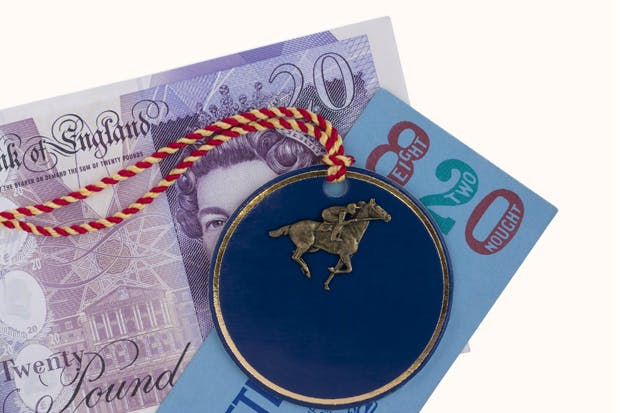
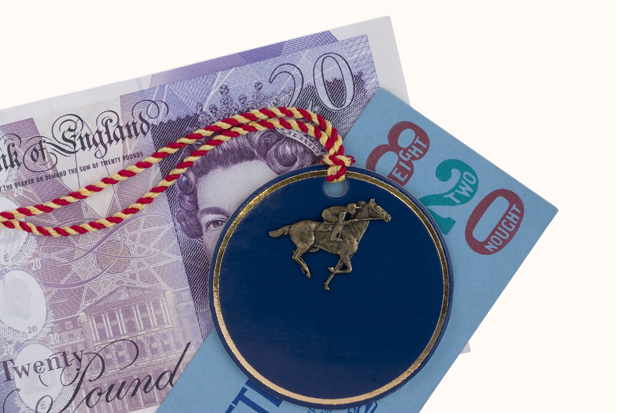
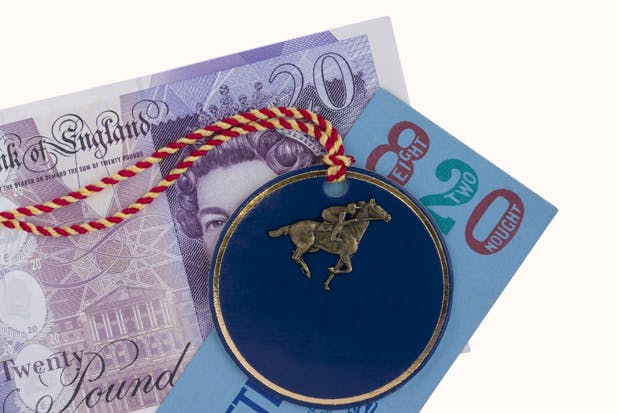
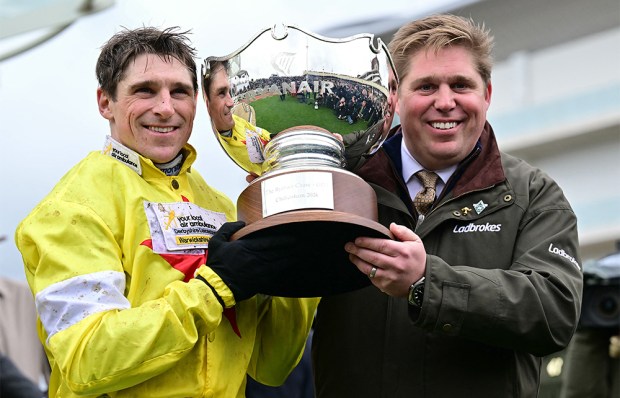
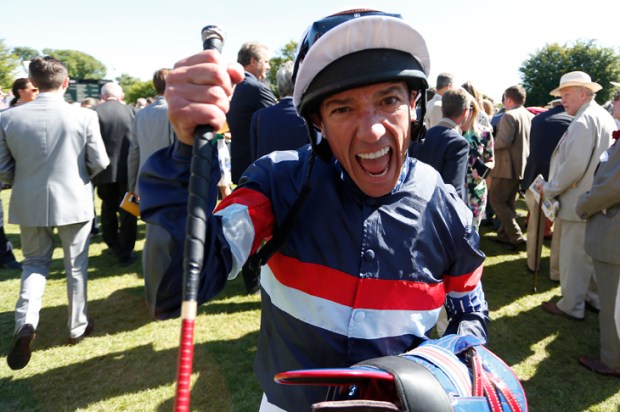
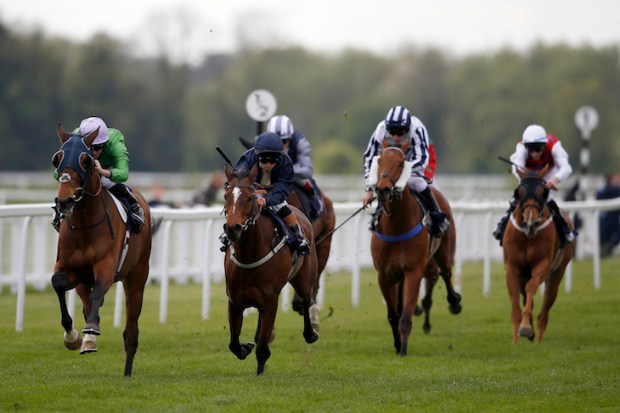
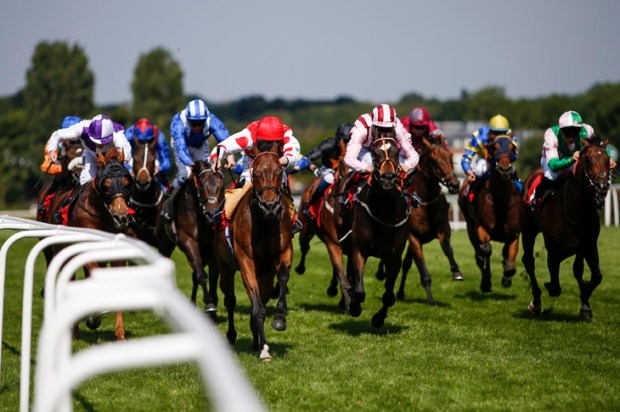






Comments
Don't miss out
Join the conversation with other Spectator Australia readers. Subscribe to leave a comment.
SUBSCRIBEAlready a subscriber? Log in